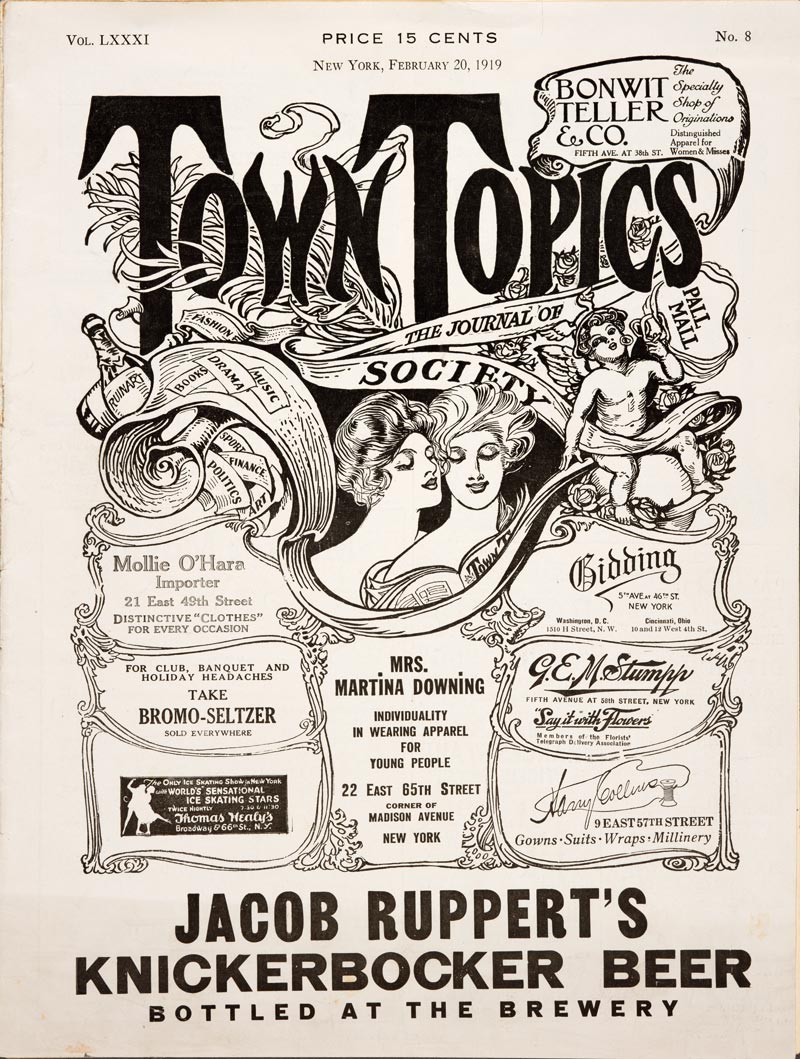
Town Topics. The Journal of Society (1883 to 1930) included – like many newspapers and magazines of the Gilded Age – a segment on Wall Street, some pieces of poetry and jokes as well as reviews of literature and theater. Unliked any other periodical of the time, however, it was most well-known for its “department of social items, gossip, and scandal” (Mott). These society pages have become a rich source for biographies of some of the leading figures of the era (e.g. the Astor family) and were a point of ridicule in the fiction of canonical authors like F. Scott Fitzgerald and Edith Wharton. They also offer – and it is this aspect that our seminar will focus on – a unique source on urban life in New York at the turn of the century, on the rise of the leisure class nationwide, on the development of celebrity culture in the US, and shifting ideals of gender and sexuality. Nonetheless, the magazine so far has received little scholarly attention and is therefore ripe for a digital project that makes its content accessible to a wider audience: this will be our project goal for this two-semester applied studies seminar.
In the first semester, students will be introduced to the study of periodicals (via databases of digitized archival material) and the role of print culture in the US in the late nineteenth and early twentieth century. We will also engage with important contexts for the study of Town Topics such as the rise of the new woman, the formation of a new consumer culture, and the history of the right to privacy.
In the second semester, we will focus on goals, methods, and tools for digital editions of out-of-copyright print material, before we begin our work on a shared digital compendium to Town Topics. The Journal of Society. Students will choose their thematic topics but must cooperate to create a coherent website and peer-review each other’s contributions. Participants will thus gain insights into editorial work in digital contexts and into the creation of a scholarly edition of archival sources. In the process, they will be able to experiment with different forms of presenting their research to a broader public (e.g. text annotation, data visualization, blog posts, story maps …). The summer semester will culminate in a student conference, in which participants introduce their contribution to the digital project and reflect on the research and writing process.
- Dozent/in: Simeon Apitz
- Dozent/in: Katrin Horn